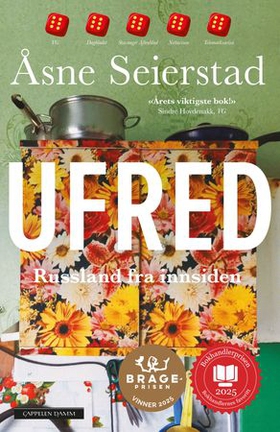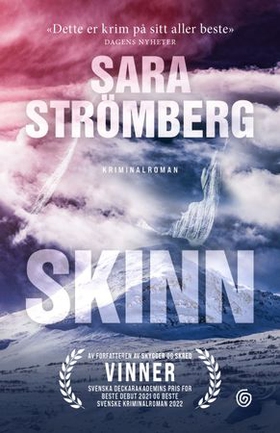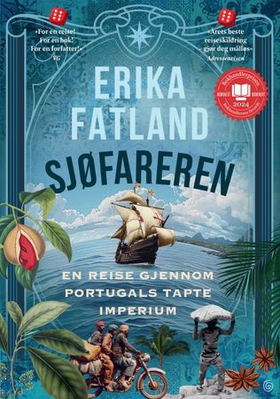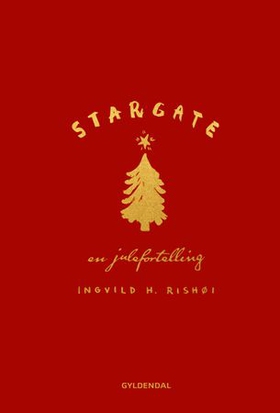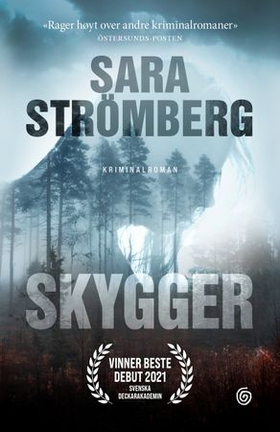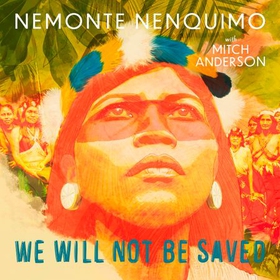
Legg til i ønskeliste
We Will Not Be Saved lydbok
296,-
** Publishing in the US as WE WILL BE JAGUARS**'I'm here to tell you my story, which is also the story of my people and the story of this forest.'Born into the Waorani tribe of Ecuador's Amazon rainforest, Nemonte Nenquimo was taught about plant medicines, foraging, oral storytelling, and shamanism by her elders. Age 14, she left the forest for the first time to study with an evangelical missionary group in the city. Eventually, her ancestors began appearing in her dreams, pleading with her to …
Andre har også kjøpt
Undertittel
A memoir of hope and resistance in the Amazon rainforest (Reese Witherspoon's Book Club Pick)
Forlag
Wildfire
Utgitt
11 juni 2024
Lengde
13:32
Sjanger
Romaner, Skjønnlitteratur
Språk
English
Format
mp3
DRM-beskyttelse
App-only
ISBN
9781472289704
** Publishing in the US as WE WILL BE JAGUARS**
'I'm here to tell you my story, which is also the story of my people and the story of this forest.'
Born into the Waorani tribe of Ecuador's Amazon rainforest, Nemonte Nenquimo was taught about plant medicines, foraging, oral storytelling, and shamanism by her elders. Age 14, she left the forest for the first time to study with an evangelical missionary group in the city. Eventually, her ancestors began appearing in her dreams, pleading with her to return and embrace her own culture.
She listened.
Two decades later, Nemonte has emerged as one of the most forceful voices in climate-change activism. She has spearheaded the alliance of indigenous nations across the Upper Amazon and led her people to a landmark victory against Big Oil, protecting over a half million acres of primary rainforest. Her message is as sharp as the spears that her ancestors wielded - honed by her experiences battling loggers, miners, oil companies and missionaries.
In this astonishing memoir, she partners with her husband Mitch Anderson, founder of Amazon Frontlines, digging into generations of oral history, uprooting centuries of conquest, hacking away at racist notions of Indigenous peoples, and ultimately revealing a life story as rich, harsh and vital as the Amazon rainforest herself.
The Waorani language (referred to as Wao Tededo in the audiobook) is one of the world's most endangered languages and is only spoken by around 2,000 people. The Publishers would like to thank Oswando Nenquimo (Opi) and Connie Dickinson as well as the Endangered Languages Archive https://www.elararchive.org/ and the Endangered Languages Documentation Program https://www.eldp.net/ for their valuable support in ensuring accurate pronunciation of Waorani names and terms.
'I'm here to tell you my story, which is also the story of my people and the story of this forest.'
Born into the Waorani tribe of Ecuador's Amazon rainforest, Nemonte Nenquimo was taught about plant medicines, foraging, oral storytelling, and shamanism by her elders. Age 14, she left the forest for the first time to study with an evangelical missionary group in the city. Eventually, her ancestors began appearing in her dreams, pleading with her to return and embrace her own culture.
She listened.
Two decades later, Nemonte has emerged as one of the most forceful voices in climate-change activism. She has spearheaded the alliance of indigenous nations across the Upper Amazon and led her people to a landmark victory against Big Oil, protecting over a half million acres of primary rainforest. Her message is as sharp as the spears that her ancestors wielded - honed by her experiences battling loggers, miners, oil companies and missionaries.
In this astonishing memoir, she partners with her husband Mitch Anderson, founder of Amazon Frontlines, digging into generations of oral history, uprooting centuries of conquest, hacking away at racist notions of Indigenous peoples, and ultimately revealing a life story as rich, harsh and vital as the Amazon rainforest herself.
The Waorani language (referred to as Wao Tededo in the audiobook) is one of the world's most endangered languages and is only spoken by around 2,000 people. The Publishers would like to thank Oswando Nenquimo (Opi) and Connie Dickinson as well as the Endangered Languages Archive https://www.elararchive.org/ and the Endangered Languages Documentation Program https://www.eldp.net/ for their valuable support in ensuring accurate pronunciation of Waorani names and terms.

